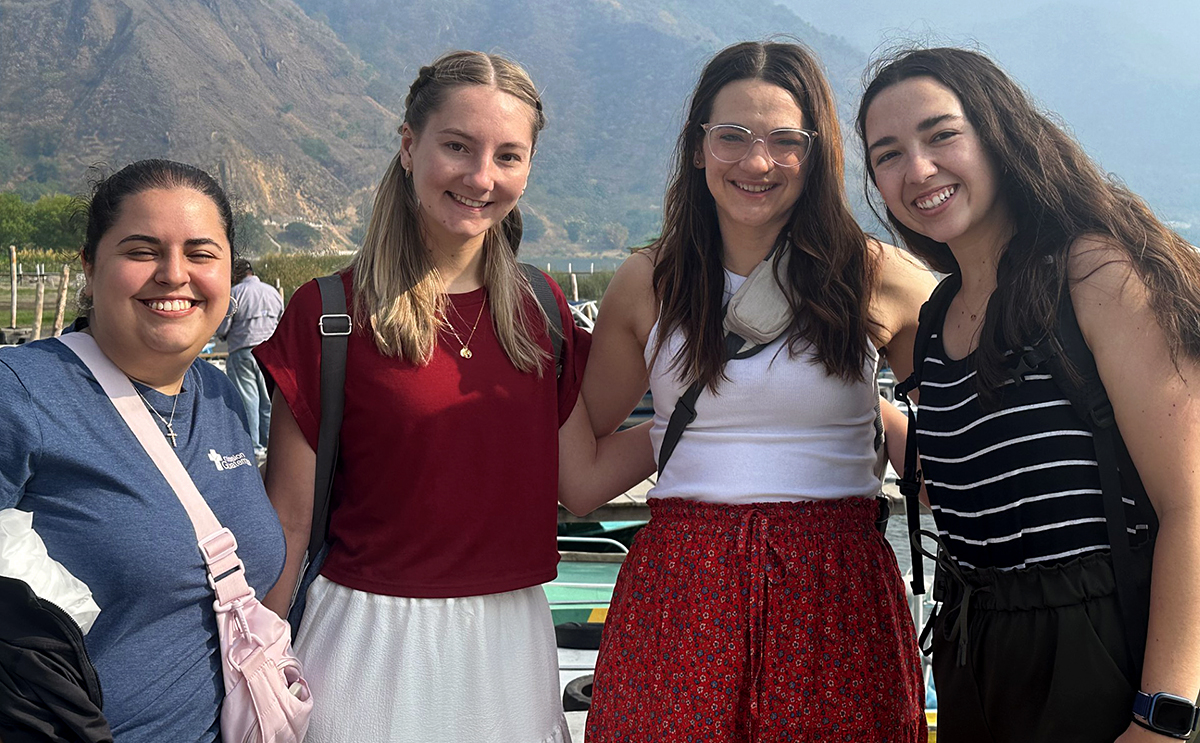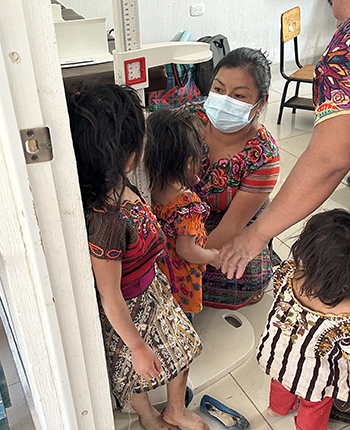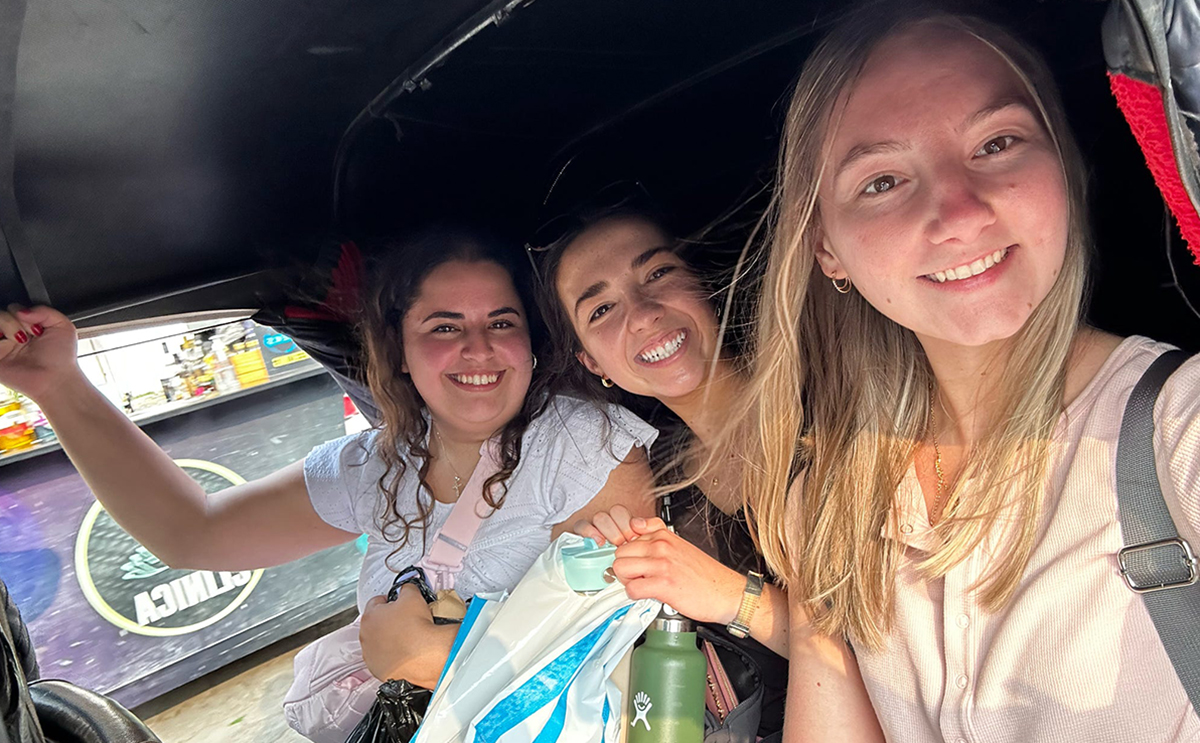Bridging a research project between two countries and 2,000 miles comes easy for BW professor Dr. Laura Hopkins, who recently returned from a trip to Guatemala, where she and three students collected data on childhood nutrition.

The public health professor's trip to Panajachel is part of a partnership project with Mission Guatemala that began last spring when BW sent a group of faculty and students to the Central American country. During that visit, Mission Guatemala staff asked for assistance in helping assess their nutrition programs for youth with the goal of potentially expanding their outreach efforts.
"Like many developing countries, Guatemala is experiencing what is referred to as the dual burden of disease, where they have a significant number of children who are undernourished. At the same time, there are signs of something we call overnourished children that can come as a result of processed and westernized foods seeping into their food culture," explained Hopkins.
"Our collaboration with Mission Guatemala includes assessing the initial data they sent us a few months ago and then compiling it with additional data we collected during our trip, May 4-11. During our time there, we did a community nutrition health assessment to better understand what they are doing, what the food and nutrition landscape is in Guatemala, and to learn how their clients view and prioritize their dietary preferences and nutritional health," she detailed.

"While there, we visited their clinic and engaged in discussions with physicians and staff members. We also traveled to the various communities served by Mission Guatemala to observe and speak with families," she added.
"In the fall, we will continue this work by summarizing our assessment findings, providing recommendations to the Mission Guatemala team and participating in conversations about the next phases of the program. The long-term goal is to assist Mission Guatemala with the nutrition programs it administers to its communities," said Hopkins.
Hopkins went on to say that the opportunity provides dual benefits to BW as well. The three students involved in the project are reaping personal and professional rewards.
"Students grow when they can apply what they are learning in the classroom to real life. It equips them with skills they will need to be effective in their careers. As an educator, I want to create as many of these opportunities as I possibly can. As someone who had the chance to travel a lot during my undergraduate and graduate training, I believe any travel — even within one's own country, let alone to another country — fosters growth," emphasized Hopkins.
Among student participants are rising seniors Hayat Lachheb, Alyssa Musat and Aly Sveda. Both Lachheb and Sveda are public health majors, and Musat is a neuroscience major. Musat and Sveda are Choose Ohio First STEM Scholars.
Sveda described the project and travel abroad as a once-in-a-lifetime experience that will enable the Strongsville, Ohio, resident to apply what she is learning in the classroom to real-world situations. "Opportunities such as this allow me to prepare for my future career in the public health industry by putting my knowledge into action. Faculty-student collaborations greatly enrich my learning at BW by giving me the opportunity to work closely with my professors, who are experts in their field."
Lachheb described the trip as "the most amazing experience" she's had in the public health realm. The Parma Heights, Ohio, resident returned to Northeast Ohio excited to expand her knowledge and potential career focus into global health work.
The trip also benefited the career focus of Musat, who decided last spring to shift her career goals from neuroscience research to nutrition. She sought out Hopkins for advice. "Throughout my many meetings with Dr. Hopkins, I shared my hope to participate in a faculty-led study abroad program that related to nutrition. When this opportunity became available, I was in from the very beginning," said the aspiring dietitian.
"Faculty-student collaborations enrich learning at BW because they give students a chance to make a real-world difference with the guidance of a mentor who is there every step of the way," noted Musat.
"To aid in the financing of this trip, I applied for and received a Women for BW grant. It means so much to me that the women behind this grant have such a passion for empowering female students and faculty members to make a difference in this world. Truly, without the amazing people behind this grant, I would not be able to participate in this trip. I am immensely grateful for their support," Musat said with heartfelt gratitude.
"This experience has fulfilled my goal of broadening my horizons in both the realms of nutrition and cultural awareness. I am deeply appreciative about the wealth of knowledge and personal growth I have gained through this journey of exploration and learning," added Musat.
